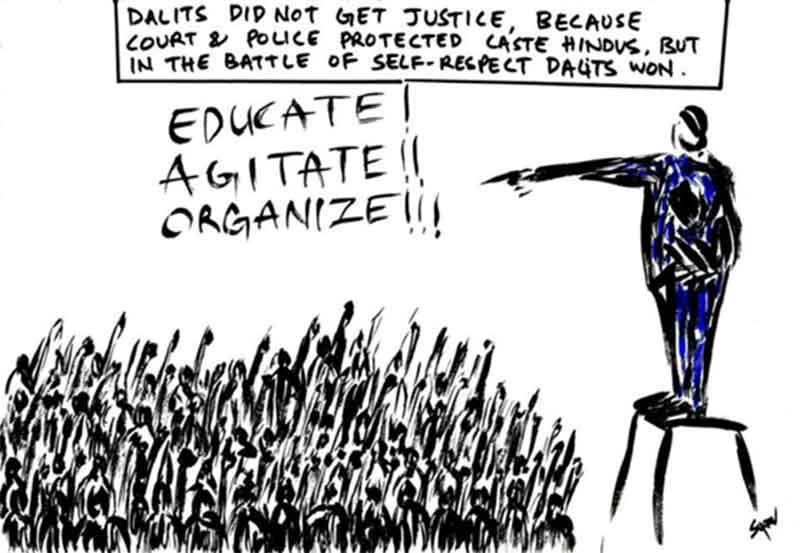
The Heraclitean notion that ‘changes is only constant’ suggests that transformation is inevitable, regardless of all opposition to it. However, when this continuity of change merely accommodates existing social, political, economic, cultural, and religious structures, it does not represent real change—it is simply the reproduction of the existing order by other means. Such a reproductive process of change enables the growth of different forms of stagnancy and allows all forms of orthodoxy to survive and even thrive, despite scientific revolutions and technological advancements. Thus, not all forms of change represent progressive transformations within society. The persistence of social and political stagnation often reflects a lack of progressive change grounded in self-reflections and criticisms.
Criticism of the state and government is often branded as anti-national, while criticism of the family and society is labelled as anti-social behaviour or dismissed as deviant and perverse. Individual acts of critique often tend to breed enmity. In such an environment, science and scientific thinking wither away, as science thrives on the celebration of criticism and the questioning of all forms of established norms. The comfort zone of a culture devoid of criticism breeds stagnation under the guise of change, creating a fertile ground for anti-scientific thoughts, actions, and practices to survive and thrive in the name of customs and traditions both in their dominant and marginalised forms. These ideas based on traditions and customs produce dominant, anti-democratic institutions, structures, and processes that oppose all forms of progressive and revolutionary change by accommodating existing orthodoxies.
Such an entrenched, biased environment against science, reason, and objective knowledge has been shaped by the subjective conditions of all orthodoxies, which prohibit progressive consciousness and radical change necessary to create a new social, political, economic, and cultural order based on equality, liberty, and justice. It helps the ruling classes to thrive and govern an orderly society which is free from critical thinking and self-reflection.
There is a growing trend of bourgeois criticism rooted in essentialist and functionalist perspectives, aimed at expanding narratives based on elite consensus. For example, the bourgeois often criticise democracy when empowered citizens challenge the capitalist realities of exploitation or when governments intervene in the accumulation processes of capitalism. Such criticisms are essentialist in nature and do not contribute to deepening democracy or empowering citizens, states, and governments to act in the interests of people. Instead, bourgeois critiques are often directed at undermining democracy under the guise of promoting market efficiency and productivity growth. Essentialist and functionalist criticisms promote conformity and reinforce status quo to normalise power and naturalise the hegemony of the powerful.
Petty-bourgeois intellectuals, journalists, politicians, NGOs, civil society organizations, and state institutions often create conditions for funded research and research institutions that promote narrow empiricist narratives devoid of emancipatory scientific knowledge—knowledge that could liberate individuals from both physical and mental forms of slavery. These narratives, while presented as change, in fact produce and reproduce conformity, and social, political, economic and intellectual stagnancy to resist radical change.
The continuous growth of stagnancy is a product of accommodative change that upholds dominant ideologies of the ruling and non-ruling elites and their entrenched structural inertia and processes that resist radical transformation to empower people in a progressive path. The dissenting voices and scientific praxis are marginalised and undermined to discourage critical inquiry to produce knowledge that threatens elites. The radical and progressive movements are delegitimised in the name of law, order and stability to continue the hierarchy of power and its exploitative regime.
Therefore, social, political, economic and cultural stagnation is not an accidental outcome of constant change, but a deliberate strategy aimed at continuously undermining and delegitimising progressive movements during periods of transformation intended to deepen democracy, secularism, and science for inclusive progress, peace, and prosperity for all. It suppresses progressive change while promoting accommodative change under the guise of stability and continuity. Social, political and economic stagnation is a systemic design that serves to preserve and promote the interests of the privileged. Stagnancy is a culture and a tool used by the bourgeoisie to create crises—social, political, economic, and cultural—thereby establishing the elites as the only alternative.
In such a scenario, it is essential to cultivate a culture of criticism and self-reflection—one that encourages questioning everything that exists in order to generate new knowledge and hopes that not only upholds democratic values but also broadens the horizons of scientific progress along a truly transformative path toward equality, justice, and liberty.
Bhabani Shankar Nayak is a political commentator















































